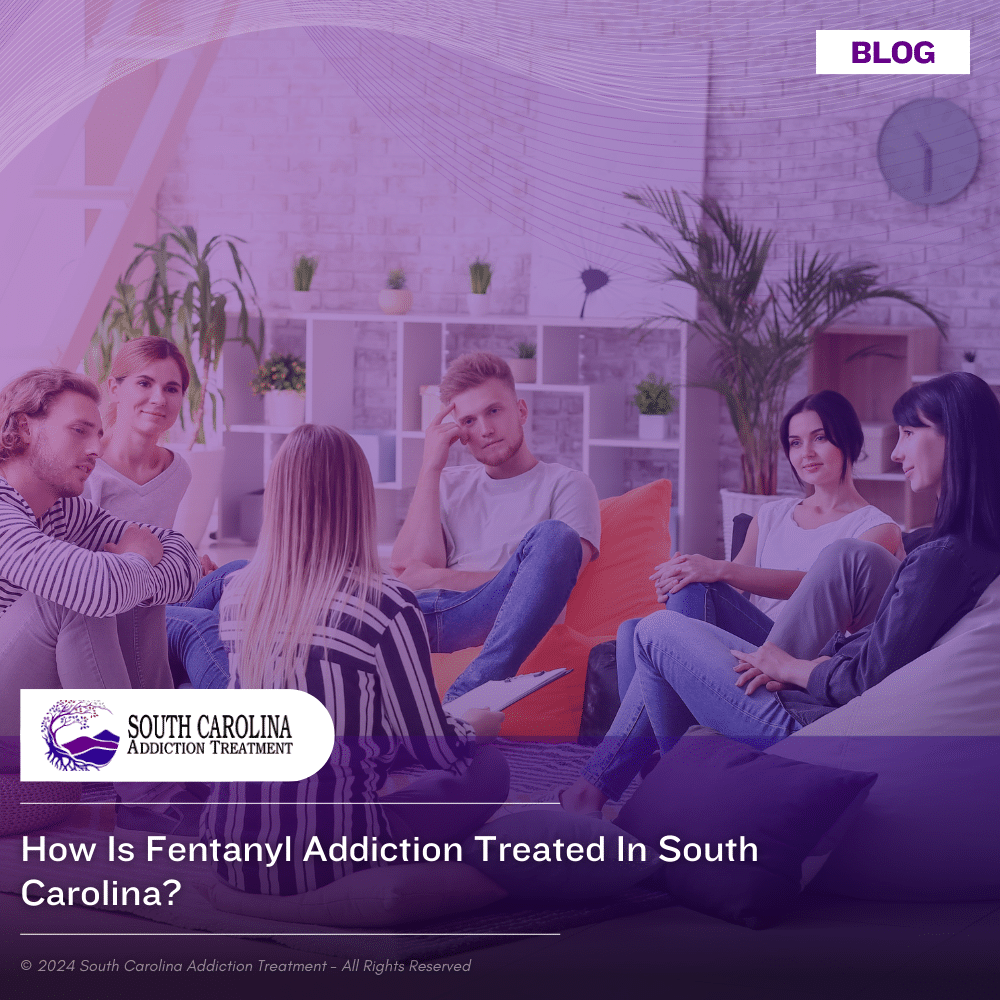How is Fentanyl Addiction Treated in South Carolina?

Medically Verified: 2/1/24
Medical Reviewer
Chief Editor

All of the information on this page has been reviewed and verified by a certified addiction professional.
An epidemic of synthetic opioid abuse is changing the landscape of the United States. Opioid overdoses are at the top of the list of causes of death, outpacing car crashes, gunshots, or deaths from AIDS at its peak. Between 2013 and 2018, overdose deaths rose by 1000%. What is the culprit behind many of these preventable deaths? A deadly drug called fentanyl.[1]
Fentanyl abuse has hazardous consequences, including overdose and death. It is a lethal drug that is widely available, making it one of the most dangerous drugs available. Fentanyl abuse can quickly spiral into a life-threatening event, and it’s important to seek treatment as soon as possible to stop using it. If you or someone in your life abuses fentanyl or other opioids, seek immediate treatment. Contact the South Carolina Addiction Treatment team to explore your treatment options and take the first steps toward recovery as quickly as possible.
What is Fentanyl?
Fentanyl is a potent synthetic (manufactured) opioid drug that relieves severe pain, usually after surgical procedures. In some cases, doctors may prescribe fentanyl to relieve chronic pain in people who have developed a tolerance to other opioids. When taken under a doctor’s guidance, fentanyl can be administered through the skin via a patch or ingested orally in lozenges.
Fentanyl is similar to morphine but about 50 to 100 times more potent.[2] Tiny amounts of fentanyl can be lethal, and people who use it must do so only under careful medical supervision.
But many people take fentanyl without a prescription. Drug dealers may mix illicitly manufactured fentanyl with other illicit drugs like MDMA, meth, heroin, or cocaine. The effects of fentanyl are so powerful that only a tiny amount can produce a “high,” and it is much cheaper than other drugs. This practice is hazardous and means that people using other substances may unknowingly ingest lethal doses of fentanyl.
Understanding the Side Effects and Risks of Fentanyl
Opioid drugs like heroin, morphine, and fentanyl bind to opioid receptors in the brain. Opioid receptors are abundant in parts of the brain associated with emotions and pain. The side effects of fentanyl include:
- Euphoria
- Sleepiness
- Confusion
- Sedation
- Slow or shallow breathing
- Constipation
- Nausea
- Unconsciousness
Overdose is a significant concern with fentanyl use. Taking too much fentanyl can lead to slowed or stopped breathing, which causes a lack of oxygen to the brain resulting in coma or death. It takes very little fentanyl to experience an overdose–and people who use other illicit drugs cut with fentanyl may ingest a lethal dose of the drug without knowing it.
A fentanyl overdose is a life-threatening medical emergency. If you or someone around you is having an overdose, call 911 immediately. Administer naloxone if possible and wait until emergency medical support arrives.
Fentanyl Abuse and Addiction
Fentanyl is a potent drug, and using it can lead to addiction. Taking opioids regularly can cause your body to develop tolerance, meaning you need to take more to get the desired effects. In time, it can become almost impossible to experience pleasure without taking the opioid. Getting and using the drug becomes the center of your focus.
If you use fentanyl or other opioids for an extended period and then stop, you’re likely to experience withdrawal symptoms as your body adapts to the absence of the drug. Withdrawal symptoms can include:[3]
- Muscle aches
- Bone pain
- Sleep problems
- Diarrhea and vomiting
- Chills and goosebumps
- Leg twitching
- Severe cravings
The symptoms of opioid withdrawal can be so brutal that many people cannot detox independently. The support of a medically-supported detox program and comprehensive treatment can help you stop using opioids safely and give you the tools to avoid relapse for life.
What Happens in Fentanyl Addiction Treatment?
Because opioid addiction is a complex condition, people require comprehensive treatment to overcome it and avoid relapse. Detox alone is not usually enough to help people put addiction behind them. Treatment plans must include therapies that can address the physical, emotional, and behavioral parts of addiction.
Medications
Most treatment programs for fentanyl addiction include medications that can help people taper their opioid use slowly, reducing the severity of withdrawal and leading to better long-term outcomes. Medications used in fentanyl addiction treatment include:
- Methadone
- Buprenorphine (Suboxone or Subutex)
- Naltrexone (Vivitrol)
These medications bind to opioid receptors or block them, making it safer and easier to stop using fentanyl.
Therapy
Individual and group counseling are essential aspects of a comprehensive fentanyl addiction rehab program. Therapeutic approaches like cognitive behavioral therapy, motivational interviewing, and contingency management can help people change their behaviors and improve their ability to avoid relapse for the rest of their lives.
Holistic therapies
Fentanyl addiction is hard on your body and mind. Holistic therapies like massage, mindfulness, exercise, and nutrition support can help people improve their mental and physical health as they heal from addiction. These holistic practices should only be used to complement a treatment plan that uses evidence-based treatments.
Find Treatment for Fentanyl Addiction in South Carolina Today
Fentanyl abuse and opioid addiction can be life-threatening. Don’t wait another day for the treatment you need. Reach out to the caring team at South Carolina Addiction Treatment not to explore your fentanyl addiction treatment options and find the support you need to stop using opioids or other substances.
References:

